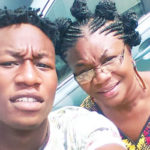
Ahead of the 2019 general election, which is threatening to be an epochal battle among the ruling All Progressives Congress (APC), the opposition Peoples Democratic Party (PDP) and the much-touted Third Force, if it musters enough strength to challenge the two entrenched major parties, a fresh wave of reconciliations has begun to sweep through the land.
With the two main political parties bedevilled by crises of various magnitude and dimensions, the race for the 2019 presidential election and other key political positions has begun to open the underbelly of the parties, showing their weaknesses and foibles and warranting a conscious move to nip the crises in the bud.
The ruling APC has been facing the challenges occasioned by the politics of non-inclusiveness exhibited by the President Muhammadu Buhari leadership after emerging winner in the 2015 election after what bookmakers would describe as a joint venture contribution from all ends as well as the high-handedness of leaders of the party across most of the 36 states, with governors, ministers, senators and leaders of the party locked in an unending struggle for supremacy.
In the PDP, where the hubris and pitfalls of the past such as struggle for supremacy, imposition of candidates and complacency, which led to its downfall in 2015 remained largely unaddressed, a fresh wound appeared to have been inflicted on the party with the outcome of its last National Convention, leaving the party beleaguered, battered and gasping for breath in many states.
With the major parties facing these serious hurdles, threats of a new movement or what some people have called a Third Force has begun to gain traction, leading to serious fears among the rank and file of the parties that something urgent must be done to prevent the fortunes of the major parties from nose-diving. These fears must have led the PDP, which set up the Governor Seriake Dickson reconciliation committee to appease aggrieved camps in the party following the misadventure of the National Convention while the APC toed a similar path by calling on the National Leader of the party and former governor of Lagos State, Senator Bola Tinubu, to calm frayed nerves in the party.
Considered Herculean tasks, the leaders of the APC and PDP have swung into action, raising hopes in the major parties and leading to questions on how the committees would achieve success in reconciling sworn enemies, douse heated tensions and bring about cohesion among camps of individuals with ambitions. Will the reconciliation moves succeed? Are they just lame attempts to bring people together, win election and return to the status quo of non-inclusive politics? How will individuals who appeared to have vowed to never work together accept the moves? These are the questions that only time can answer. But as things stand, it is a new season in Nigeria’s body-politic; it is a season of pacifications and soft words—the season of reconciliations and mediations.
WATCH TOP VIDEOS FROM NIGERIAN TRIBUNE TV
- Let’s Talk About SELF-AWARENESS
- Is Your Confidence Mistaken for Pride? Let’s talk about it
- Is Etiquette About Perfection…Or Just Not Being Rude?
- Top Psychologist Reveal 3 Signs You’re Struggling With Imposter Syndrome
- Do You Pick Up Work-Related Calls at Midnight or Never? Let’s Talk About Boundaries






